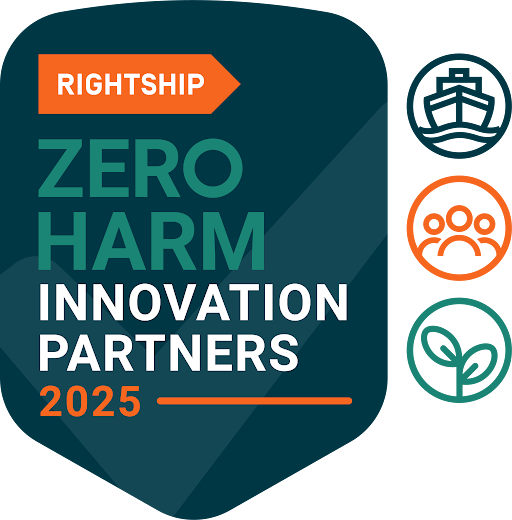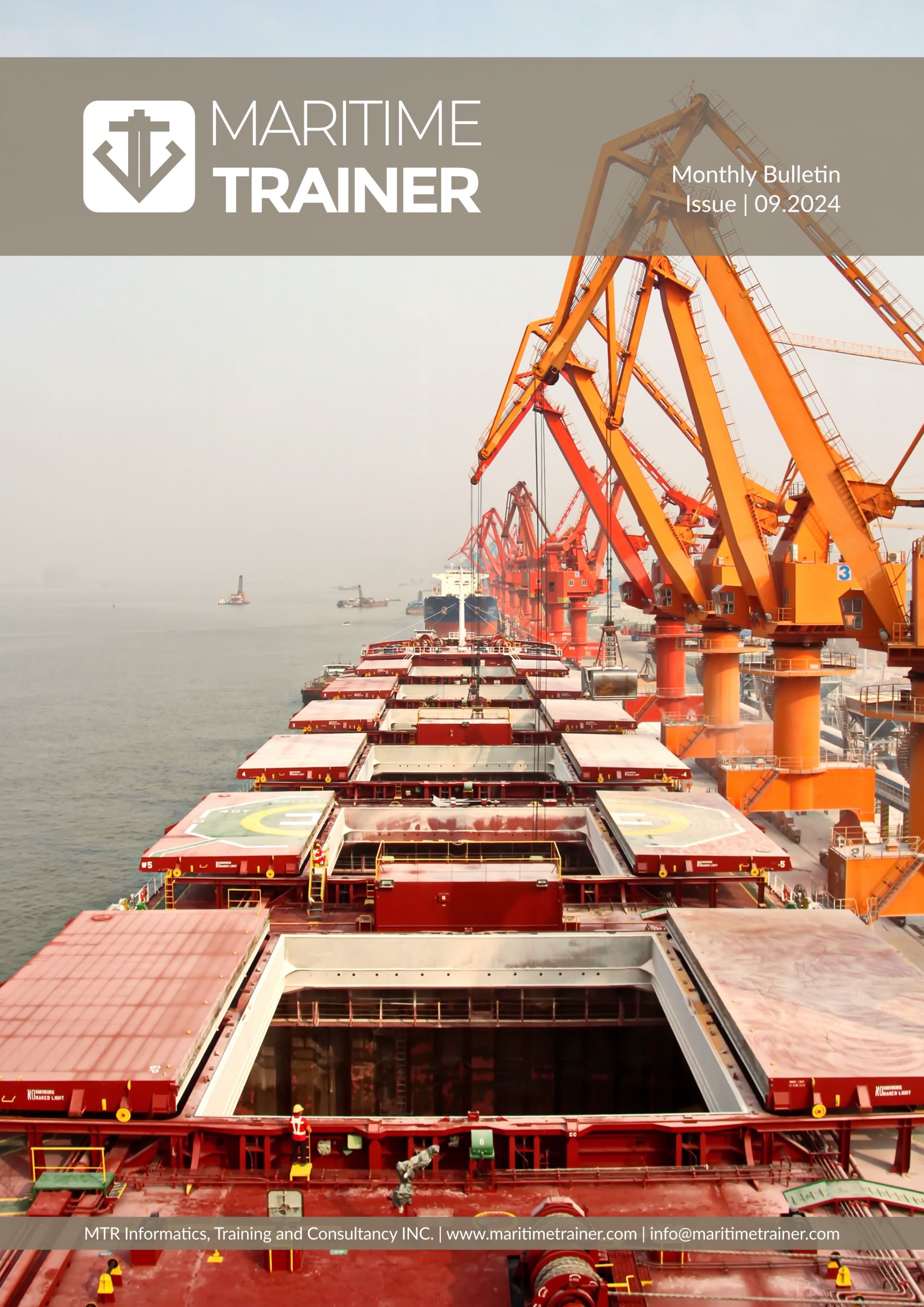September 2024 Maritime Insights: Monthly Health and Safety Bulletin
The maritime industry is continuously evolving, and staying updated is essential to maintain safety, operational efficiency, and sustainability. Our September 2024 Maritime Trainer Health and Safety Bulletin covers the most critical developments, insights, and innovations shaping the future of maritime operations. This month’s topics address both immediate challenges and long-term goals for the industry, emphasizing environmental initiatives, safety measures, and seafarer well-being.
Support for Developing Countries to Reduce GHG Emissions
As the shipping industry strives towards sustainability, the IMO's GreenVoyage2050 initiative is providing essential support to developing countries. This program focuses on feasibility studies for pilot projects that aim to reduce ships' greenhouse gas (GHG) emissions. Selected projects will receive technical and economic assistance, risk assessment, and stakeholder engagement support to ensure effective implementation.
The initiative aligns with the IMO's 2023 Strategy for reducing GHG emissions, which targets net-zero emissions by 2050. By facilitating the adoption of low-carbon and zero-carbon technologies, fuels, and energy-efficient practices, GreenVoyage2050 aims to transform the shipping industry into a sustainable and environmentally responsible sector. This program offers developing countries an opportunity to lead by example in embracing green shipping technologies, ultimately reducing their environmental footprint.
Namibian Officials Trained on Effective Port Security
Ensuring maritime security remains a top priority for global trade, and Namibia has taken significant steps to enhance its port security measures. In September 2024, 29 maritime officials from various government agencies completed a week-long training program led by the IMO. This training was part of the broader National Port State Control Workshop, which focused on enforcing international security standards under the SOLAS (Safety of Life at Sea) Convention, particularly Chapter XI-2, which covers special measures for maritime security.
Methanol Institute Granted Consultative Status by IMO
In a significant development for alternative fuels in shipping, the Methanol Institute (MI) has been granted consultative status by the International Maritime Organization (IMO). This status allows MI to participate in IMO meetings and provide expert input on regulatory frameworks for low-carbon shipping fuels. Methanol, a cleaner alternative to traditional marine fuels, plays a pivotal role in decarbonizing the shipping industry.
Methanol’s benefits include lower carbon emissions and the ability to utilize existing fuel infrastructure with minimal modifications. MI’s involvement at the IMO will help establish robust standards for the safe design, operation, and bunkering of methanol-powered ships. Furthermore, the institute will contribute to policy initiatives that promote the use of renewable methanol, supporting the industry’s transition to cleaner, more sustainable energy sources. As the shipping industry accelerates its efforts towards net-zero emissions, methanol is poised to become a cornerstone of the future fuel landscape.
ITF Launches the Non-Seafarers' Work Clause
The International Transport Workers’ Federation (ITF), in collaboration with the Joint Negotiating Group (JNG), has introduced a crucial regulatory change: the Non-Seafarers’ Work Clause. This clause mandates that specific tasks, such as lashing and unlashing cargo, be carried out by trained dockworkers rather than seafarers. This change addresses the growing concerns over seafarer fatigue and the risks associated with assigning physically demanding tasks to overworked crew members.
Lashing and unlashing are labor-intensive tasks that significantly increase the likelihood of accidents when performed by fatigued seafarers. By transferring these responsibilities to trained dockworkers, the industry aims to reduce the physical strain on seafarers, improve safety standards, and minimize the risk of accidents on board. The introduction of this clause is a step forward in promoting a safer and more sustainable working environment for maritime professionals, ultimately enhancing crew well-being and operational efficiency.
Safety Alerts: Managing CO2 Bottles and Hypertension Onboard
This month’s bulletin also highlights two critical safety alerts that all maritime professionals should be aware of.
The first alert focuses on the proper management of CO2 bottles used in fire suppression systems aboard ships. In a recent incident, safety pins in the CO2 bottles were mistakenly left in place after a test, rendering the system ineffective during a fire. This oversight underscores the importance of thorough safety checks and adherence to procedures, particularly when dealing with life-saving equipment. All ship crews are urged to conduct regular inspections of CO2 systems to ensure they are operational and ready for immediate use.
The second alert addresses the ongoing challenge of managing hypertension among seafarers. Hypertension, or high blood pressure, is a common health issue that, if left unmanaged, can lead to severe conditions such as heart attacks and strokes. Seafarers are encouraged to adopt healthy lifestyle habits, including a balanced diet, regular exercise, and stress management techniques. Regular blood pressure monitoring is also essential for early detection and prevention of complications. By maintaining a proactive approach to health, seafarers can reduce the risks associated with hypertension and ensure they remain fit for duty.
Key Updates to the Shanghai Ship Routeing System
The Shanghai section of the Yangtze River is one of the busiest waterways in the world, and navigating it safely is a top priority. The recent updates to the “Regulations on Ships’ Routeing System for the Shanghai Section of the Yangtze River” introduce several new provisions aimed at improving navigation safety and efficiency. These changes include enhanced reporting requirements for deep-draught ships, new safety protocols for large towing fleets, and stricter regulations for night navigation.
The revisions also focus on improving traffic management and ensuring that all ships, particularly large vessels, can navigate safely through the busy waters. By optimizing the routeing system, the Maritime Safety Administration of China aims to minimize the risk of collisions and enhance overall maritime safety in the region. These updates reflect the latest legal and regulatory standards, ensuring that the Yangtze River remains a safe and efficient waterway for global shipping.
Conclusion
The September 2024 Maritime Trainer bulletin highlights the importance of staying informed about the latest developments in maritime safety, environmental sustainability, and regulatory compliance. From supporting the decarbonization efforts of developing countries to addressing crew well-being and enhancing safety protocols, these updates are critical for ensuring the future of maritime operations. By adopting these best practices, maritime professionals can navigate the evolving challenges of the industry with confidence and ensure the safety, efficiency, and sustainability of their operations.
Download and read the full version below!
For more information and to stay updated with the latest developments, connect with us on Facebook, Instagram, and YouTube. For inquiries, please contact us at sales@maritimetrainer.com.
Share This Bulletin Now!

Approved & Certified by Bureau Veritas

We are proud to be member of



